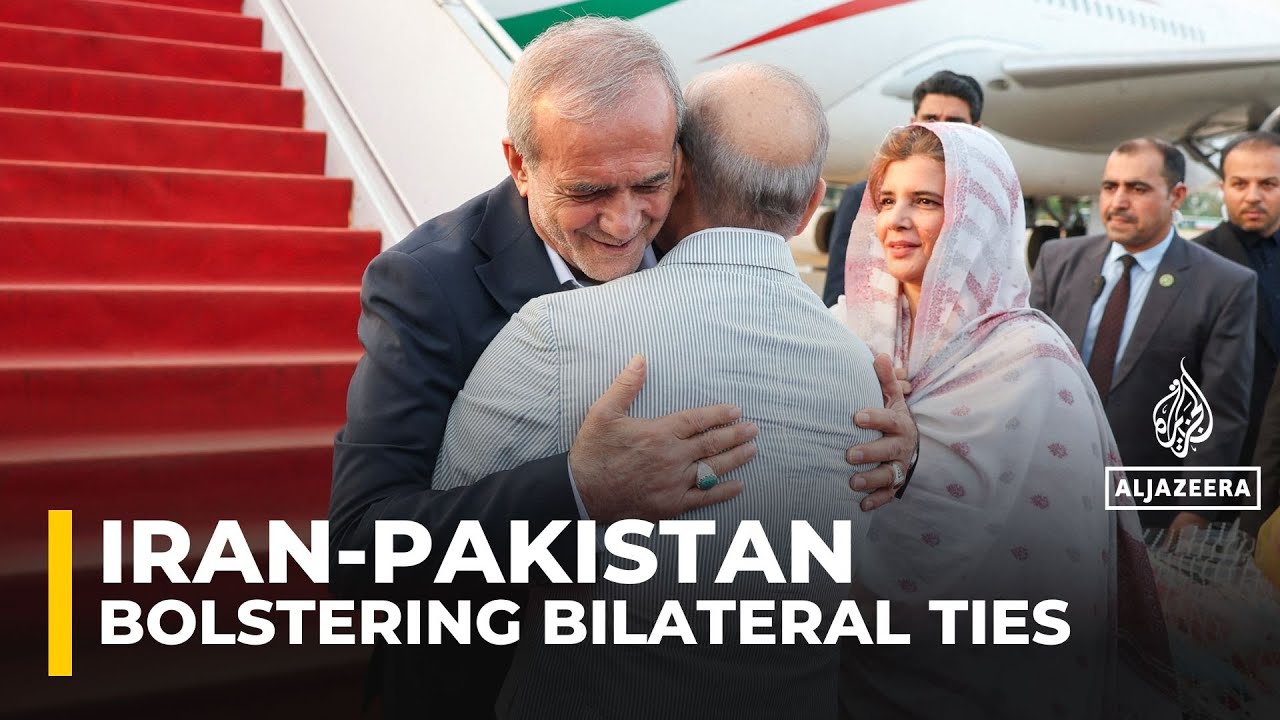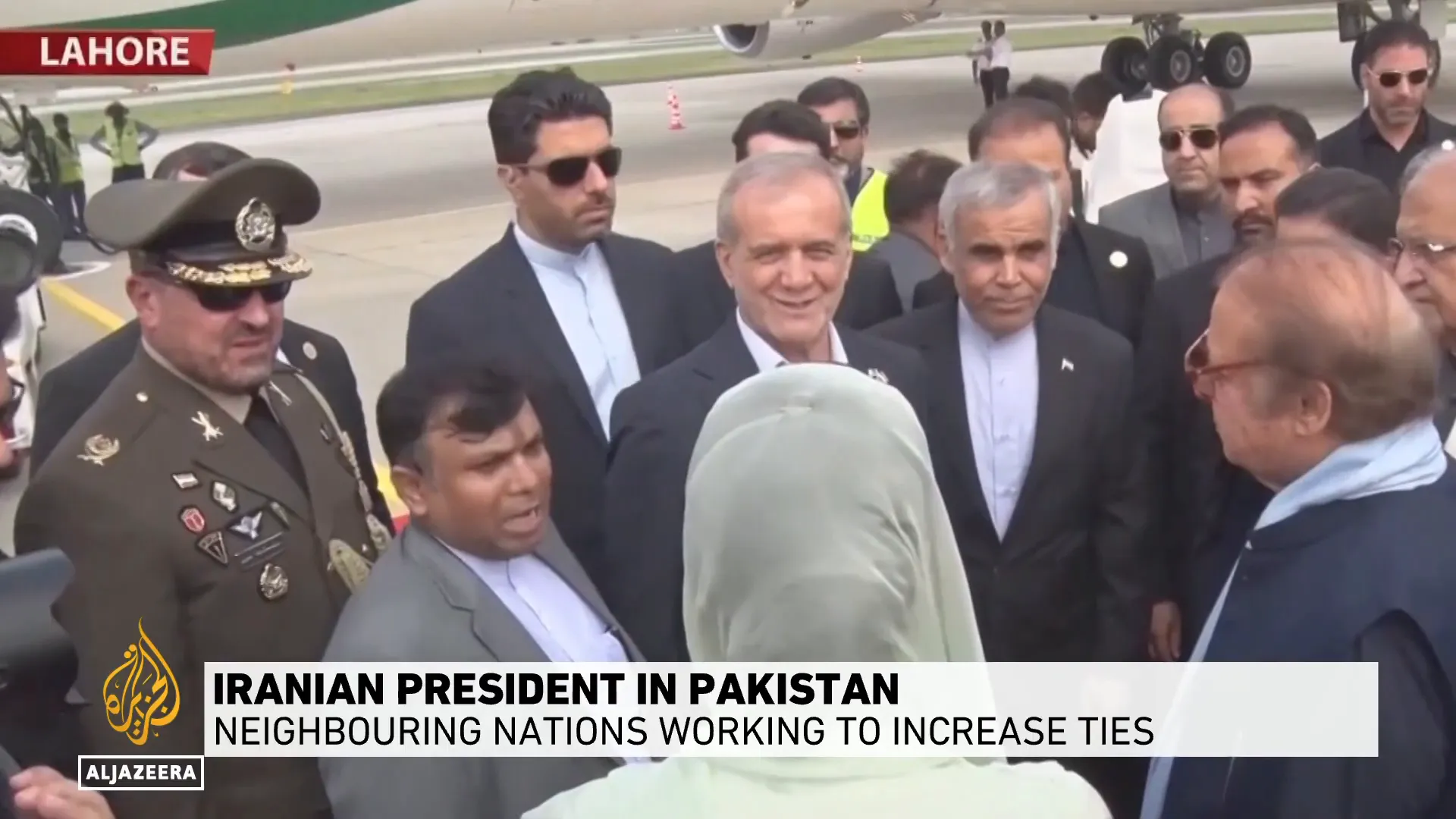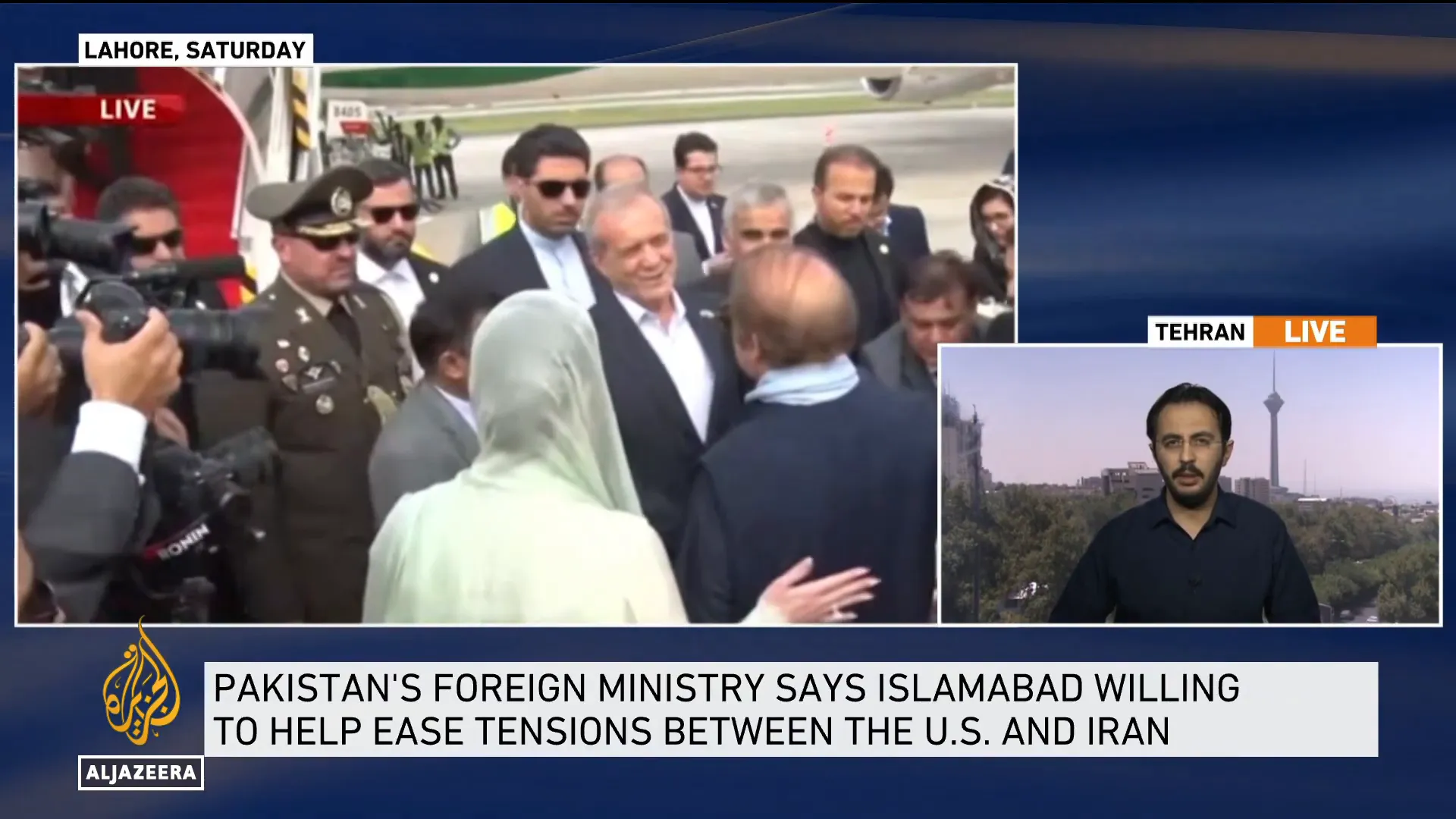Aug 3, 2025
Iran’s President Pezeshkian in Pakistan for Second Day to Boost Diplomatic, Economic Ties

Iranian President Masoud Pezeshkian is currently on a pivotal two-day visit to Pakistan, marking his first official trip abroad since taking office. This visit is expected to significantly strengthen bilateral relations, expand economic cooperation, and foster regional security collaboration between the two neighbouring countries.

Table of Contents
- Strengthening Diplomatic Relations Between Iran and Pakistan
- Economic Opportunities: Leveraging Regional Connectivity
- Defense and Security Cooperation
- Energy Collaboration Amid Sanctions
- Pakistan’s Role in Regional Diplomacy
- Iran’s Broader Regional Strategy
- Conclusion
- Frequently Asked Questions (FAQ)
Strengthening Diplomatic Relations Between Iran and Pakistan
President Pezeshkian began his visit in Lahore, where he was warmly received by former Prime Minister Nawaz Sharif. Following this, he met with the current Pakistani Prime Minister Shehbaz Sharif in Islamabad. These high-level meetings are expected to cement the already supportive relationship between the two nations.
From Pakistan’s perspective, this visit is highly significant. Both countries have historically supported each other on several international issues, including Pakistan’s condemnation of Israeli and US attacks on Iran. Despite a preferential trade agreement signed in 2004, political tensions and US sanctions have limited its full potential. President Pezeshkian has expressed clear ambitions to boost bilateral trade to $10 billion, a substantial increase from the current $3 billion, which is heavily in favour of Iranian exports. Pakistani exports to Iran currently stand at about $700 million.
Economic Opportunities: Leveraging Regional Connectivity
Both Iran and Pakistan are important trading partners of China, and the Iranian president aims to leverage the China-Pakistan Economic Corridor (CPEC), part of China’s broader Belt and Road Initiative (BRI). Iran envisions itself as a key transit corridor connecting Pakistan and China to Europe, enhancing regional trade routes despite the crippling sanctions imposed on Iran.
This strategic positioning could help Iran overcome some of the economic isolation it faces and deepen its ties with two major regional powers. This connectivity and geostrategic leverage are central to Iran’s vision of expanding its economic influence.
Defense and Security Cooperation
The delegation accompanying President Pezeshkian includes Iran’s defense and foreign ministers, highlighting the importance of defense cooperation in the talks. Iran is keen to enhance joint efforts with Pakistan on border management, particularly along the Pakistan-Iran border, which has been a hotspot for security concerns.
Both countries share common threats from regional terrorist groups, some of which are based in Pakistan’s tribal areas. Iranian officials have expressed hope that expanding cooperation with Pakistan will reduce terrorist attacks on Iranian territory. This security collaboration is a key priority for both nations given the complex regional dynamics.
Energy Collaboration Amid Sanctions
Energy is another critical area of cooperation. Iran has completed its side of a gas pipeline project intended to supply Pakistan with Iranian natural gas. However, the project’s progress hinges on whether the United States will permit Pakistan to purchase Iranian energy directly, given the ongoing sanctions regime.
Pakistan is eager to bring this pipeline into its territory to meet its growing energy demands, while Iran views it as a vital economic lifeline. The outcome of these negotiations will have important implications for energy security and economic ties between the two nations.
Pakistan’s Role in Regional Diplomacy
Another important aspect of this visit is Pakistan’s willingness to act as a diplomatic back channel between Iran and the United States. Islamabad has expressed readiness to facilitate easing tensions between Washington and Tehran, a role welcomed by both countries and noted by US Secretary of State Marco Rubio.
This diplomatic engagement underscores Pakistan’s strategic position in regional security and its potential to influence broader geopolitical developments in West Asia.
Iran’s Broader Regional Strategy
From Tehran’s perspective, this visit follows shortly after President Pezeshkian’s trip to Azerbaijan, underscoring Iran’s efforts to strengthen state-to-state relations across the region. The focus is not only on deepening economic ties but also on building a united front against common security threats.
President Pezeshkian’s statements reveal a clear intent to position Iran as a crucial player in the evolving geopolitical landscape, particularly through enhanced cooperation with Pakistan and China. This trip represents a strategic move to assert Iran’s influence amid increasing confrontations with Western powers.

Conclusion
President Masoud Pezeshkian’s visit to Pakistan marks a significant milestone in Iran-Pakistan relations. With ambitious goals to expand trade to $10 billion, strengthen defense and security cooperation, and leverage regional infrastructure projects like the Belt and Road Initiative, both countries are signaling a new era of partnership.
Pakistan’s role as a diplomatic intermediary between Iran and the US adds another layer of strategic importance to this visit. For Iran, deepening ties with Pakistan and China offers a way to mitigate the impacts of Western sanctions and strengthen its regional influence.
This visit not only highlights the growing economic and security cooperation between Iran and Pakistan but also underscores their shared vision for a more connected, secure, and prosperous region.
Frequently Asked Questions (FAQ)
- What is the main purpose of President Pezeshkian’s visit to Pakistan?
The visit aims to strengthen diplomatic relations, boost bilateral trade to $10 billion, enhance defense cooperation, and explore energy collaboration between Iran and Pakistan. - How does the China-Pakistan Economic Corridor (CPEC) factor into Iran’s plans?
Iran wants to position itself as a key transit corridor within the Belt and Road Initiative, connecting Pakistan and China to Europe, which could help Iran overcome economic sanctions. - What are the security concerns shared by Iran and Pakistan?
Both countries face threats from regional terrorist groups, some operating from Pakistan’s border regions. They aim to cooperate more closely on border management and counterterrorism. - What challenges affect the Iran-Pakistan gas pipeline project?
Although Iran has completed its section of the pipeline, US sanctions could prevent Pakistan from legally purchasing Iranian gas, delaying the project’s full implementation. - What role is Pakistan playing in easing US-Iran tensions?
Pakistan has offered to act as a back channel in diplomacy to help reduce tensions between Washington and Tehran, a role supported by both sides.